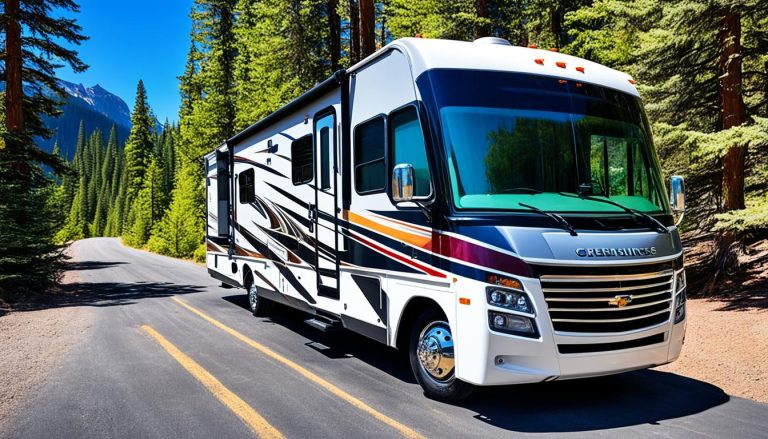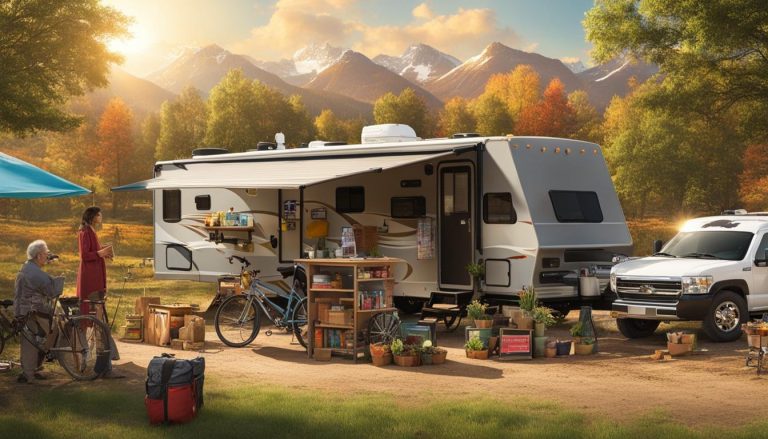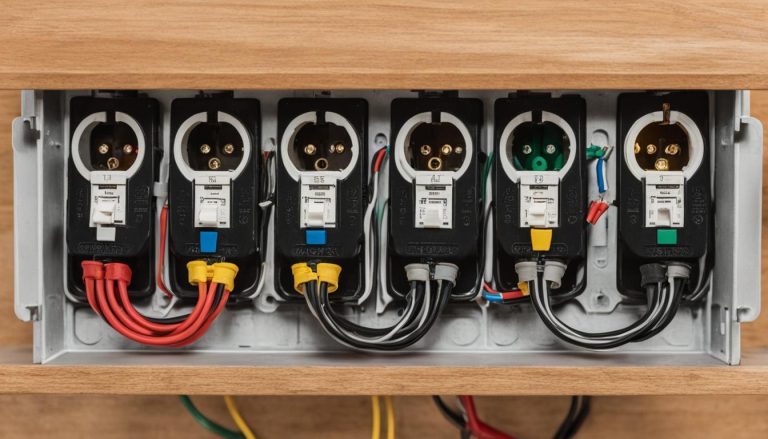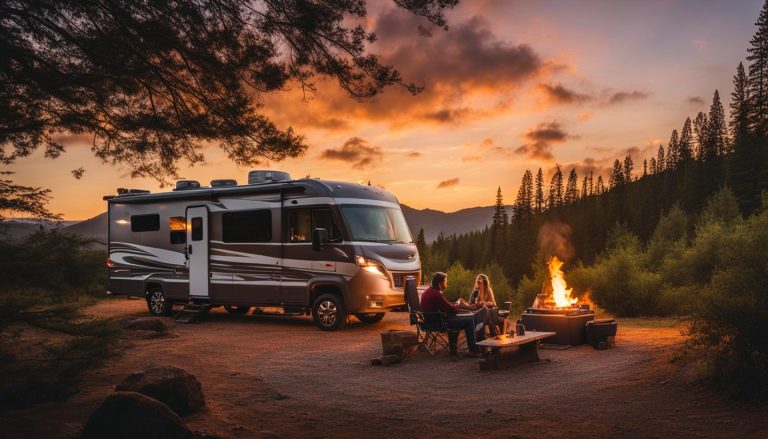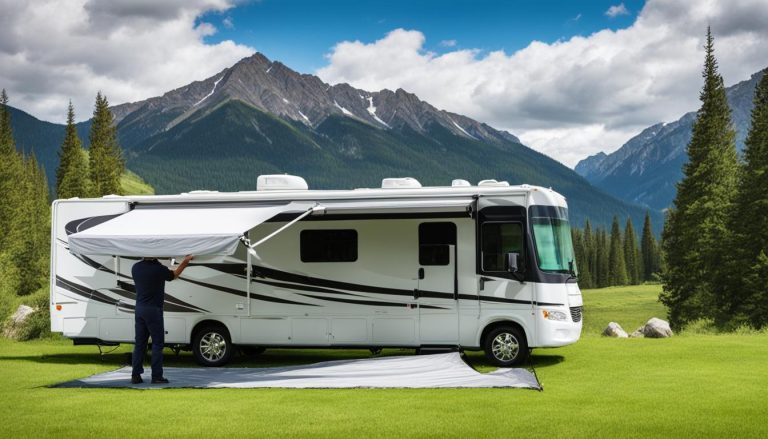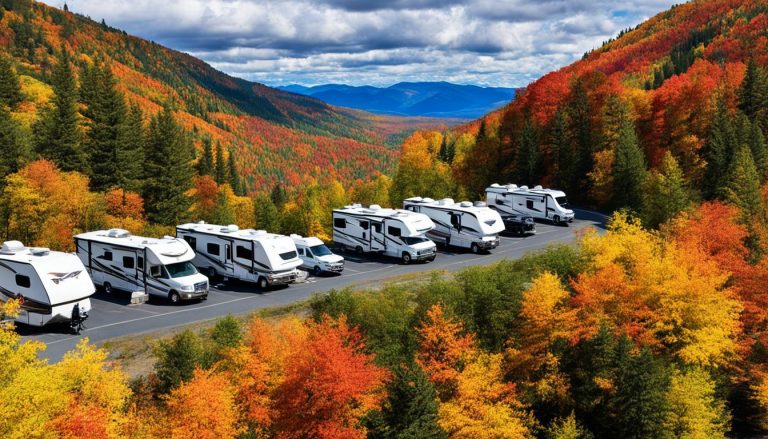RV Water System Sanitization Made Easy
gorvlifestyle.com and its partners may earn a commission if you purchase a product through one of our links
As an RV owner, ensuring the cleanliness and safety of your water system is essential for a comfortable and worry-free camping experience. Regularly sanitizing your RV water system is crucial to maintain clean water for drinking, showering, and washing dishes while on the road. Fortunately, this routine maintenance task is simple and can be done with a few basic tools and materials.
Whether you’re preparing for a new camping season or returning from a period of inactivity, sanitizing your RV water system is a must. By following a few easy steps, you can guarantee safe and fresh water for all your camping needs.
Key Takeaways:
- Regularly sanitizing your RV water system is important for safe and clean water.
- Simple tools like bleach or RV tank sanitizer can be used for sanitization.
- Sanitize your RV water system at least once a year or after 2-4 weeks of inactivity.
- Ensure you have the necessary materials, including a measuring cup, funnel, 5-gallon bucket, potable water hose, and bleach or RV tank sanitizer.
- Follow the correct steps to sanitize your RV water system using bleach, and flush it with fresh water afterward.
How Often Should You Sanitize Your RV Fresh Water Tank?
When it comes to maintaining a clean and safe water system in your RV, regular sanitization is key. But how often should you actually sanitize your RV fresh water tank? While manufacturers recommend sanitizing the tank after each use, the frequency can vary depending on individual preferences and usage patterns.
Many RVers choose to sanitize their water system once a year, typically in the spring when dewinterizing the RV for camping season. This annual sanitization routine ensures that your water is free from any contaminants and ready for use throughout the camping season.
However, some RVers prefer to take a more proactive approach and sanitize their fresh water tank every time the RV has been unused for 2-4 weeks. This can help maintain water quality and minimize the risk of bacteria or other harmful substances accumulating in the system.
Ultimately, the decision about how often to sanitize your RV fresh water tank depends on your personal preference and usage patterns. Regular sanitization, whether done annually or more frequently, will help ensure that you always have access to safe and clean water for drinking, showering, dishwashing, and laundry during your RV adventures.
Remember, a well-maintained water system is essential for your comfort and well-being while on the road!
Key Takeaways:
- Manufacturers recommend sanitizing the fresh water tank after each use
- Most RVers choose to sanitize their water system once a year, usually in the spring
- Some RVers prefer to sanitize their fresh water tank every 2-4 weeks of inactivity
- Regular sanitization ensures safe water for drinking, showering, dishwashing, and laundry
By maintaining a regular sanitization schedule for your RV fresh water tank, you can enjoy peace of mind knowing that your water system is clean and safe. Next, let’s explore the essential items you’ll need to sanitize your RV fresh water tank effectively.
What Do You Need to Sanitize Your RV Fresh Water Tank?
Sanitizing the RV fresh water tank is a simple task that requires just a few essential tools and supplies. Here’s a list of what you’ll need to effectively sanitize your RV water system:
- Measuring cup
- Funnel
- 5-gallon bucket or water storage container
- Potable water hose
- Non-scented bleach or RV tank sanitizer
Using the correct amount of bleach or sanitizer based on the capacity of your fresh water tank is crucial for successful sanitization. Remember, bleach is safe for all components of the RV water system. Alternatively, you can find pre-mixed bleach and water solutions specifically designed for sanitizing RVs.
With just these basic tools and supplies, you’ll be well-equipped to ensure the cleanliness and safety of your RV’s fresh water supply.
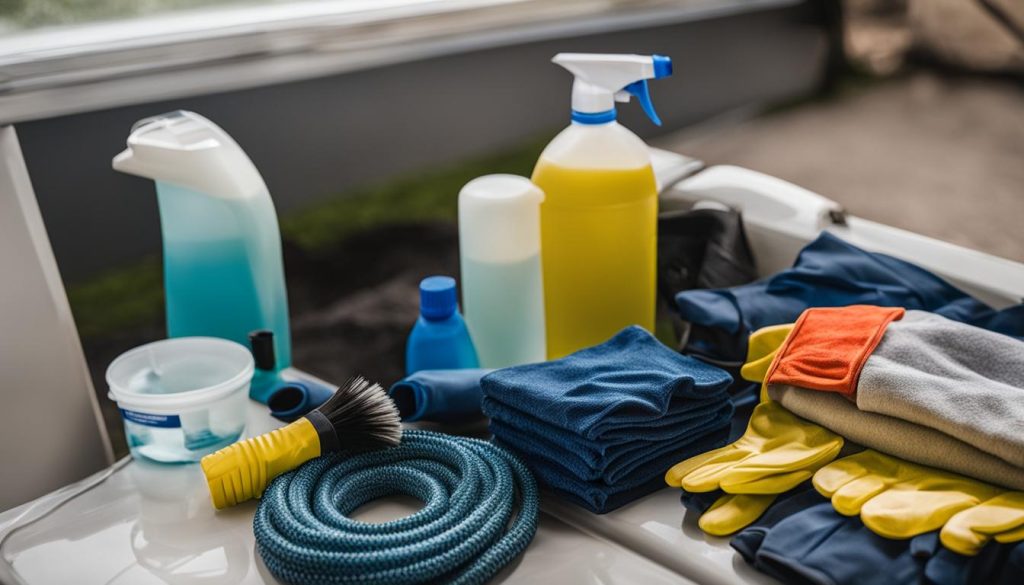
Pre-mixed Bleach and Water Solutions
“Using a pre-mixed bleach and water solution can save you time and effort during the RV water system sanitization process. These solutions are carefully formulated to provide the correct concentration of bleach, eliminating the need for measuring and mixing. Simply follow the instructions on the packaging for hassle-free sanitization.”
– RV Cleaning Pros
How to Sanitize RV Fresh Water Tank with Bleach
To ensure the hygiene of your RV water system, it’s important to know how to effectively sanitize your fresh water tank. By following these simple steps, you can maintain a clean and safe water supply for your camping adventures.
- Step 1: Turn off the water heater and water pump to prevent any water flow during the sanitization process.
- Step 2: Completely drain the fresh water system, including the fresh water tank and the low-point drains for your RV’s plumbing lines. This will ensure that the sanitization solution reaches all parts of the system.
- Step 3: Mix the appropriate amount of bleach with water. The recommended ratio is 1/4 cup of bleach for every 15 gallons of water in your fresh water tank.
- Step 4: Using a funnel, add the bleach solution to the fresh water tank.
- Step 5: Fill the fresh water tank with potable water until it is full.
- Step 6: Turn on the water pump and open all the faucets in your RV, including the shower and kitchen sink. This will help circulate the bleach solution throughout the plumbing lines, ensuring that every part of the system is sanitized.
- Step 7: Let the bleach solution sit in the system for 12-24 hours. This will give enough time for the bleach to kill any bacteria or contaminants.
- Step 8: After the recommended time, drain the fresh water tank and flush the system with fresh water. This will help remove any remaining bleach residue.
- Step 9: Close all the faucets and refill the fresh water tank with clean water. Your RV water system is now sanitized and ready to be used.
It is important to note that using bleach to sanitize your RV water system is safe, as it is compatible with all components of the system. Additionally, pre-mixed bleach and water solutions specifically made for RV sanitization are available, making the process even more convenient.
Remember, regular sanitization of your RV water system is crucial for maintaining hygiene while on the road. By following these steps, you can ensure the availability of clean and safe water for all your camping needs.
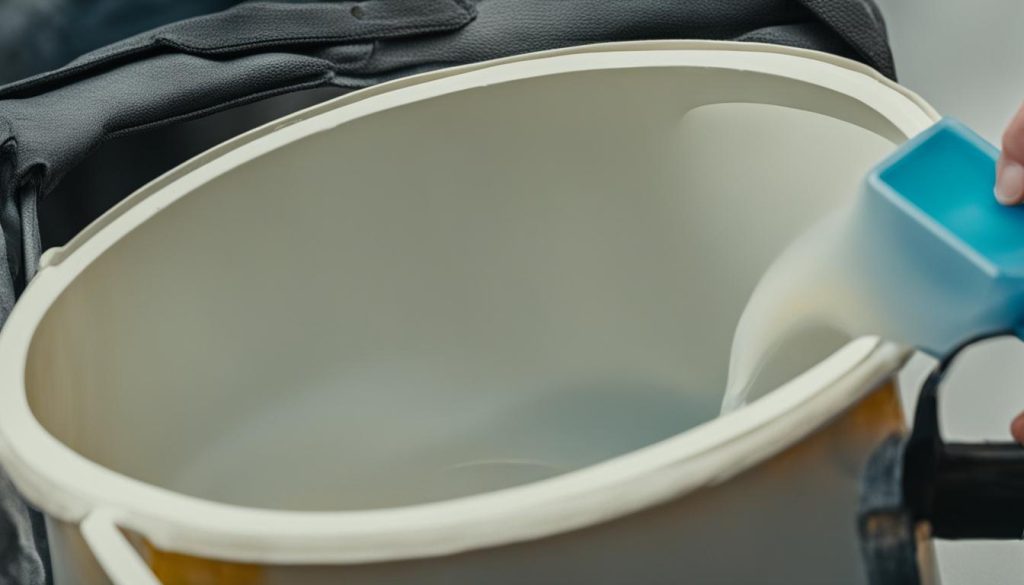
| Step | Description |
|---|---|
| Step 1 | Turn off the water heater and water pump. |
| Step 2 | Drain the fresh water system completely. |
| Step 3 | Mix the appropriate amount of bleach with water. |
| Step 4 | Add the bleach solution to the fresh water tank. |
| Step 5 | Fill the fresh water tank with potable water. |
| Step 6 | Turn on the water pump and open all faucets. |
| Step 7 | Let the solution sit for 12-24 hours. |
| Step 8 | Drain the fresh water tank and flush the system. |
| Step 9 | Refill the fresh water tank with clean water. |
Tips for Sanitizing RV Water System
In addition to regular sanitization, there are a few tips to keep your RV water system clean and safe. These tips will help you maintain the quality of your water and ensure a worry-free camping experience.
Firstly, consider using a water filter when filling your RV water tank. A good-quality water filter can help remove impurities and contaminants from the water source, providing you with clean and safe water for your RV. This extra layer of filtration can greatly improve the taste and quality of your drinking water, ensuring a refreshing experience on your camping trips.
Secondly, before sanitizing your RV water system, make sure to empty the gray water holding tank. This will prevent any cross-contamination and ensure that the sanitizing solution can effectively clean the entire system. By starting with a clean slate, you can eliminate any potential sources of odor or bacteria in your RV water system.
Finally, it is important to regularly check the tightness of the hose clamp on your fresh water tank. Over time, the hose clamp can become loose due to vibrations and movements while on the road. A loose clamp can lead to water leaks and potential contamination of your RV water system. By ensuring the clamp is tight, you can prevent any unwanted water loss and maintain the integrity of your water system.
Remember, if you detect any odd taste or smell in your RV water, it is recommended to empty and refill the fresh water tank. This simple step can help eliminate any potential issues and ensure that you have fresh and clean water for your camping adventures. By following these tips and regularly sanitizing your RV water system, you can enjoy the peace of mind knowing that your water is safe and ready for your next camping excursion.
FAQ
How often should you sanitize your RV fresh water tank?
It is recommended to sanitize the RV water system every year or after a period of 2-4 weeks of inactivity. Regular sanitization ensures safe water for all your camping needs.
What do you need to sanitize your RV fresh water tank?
To sanitize the RV fresh water tank, you will need a measuring cup, funnel, 5-gallon bucket or water storage container, potable water hose, and either non-scented bleach or RV tank sanitizer. Ensure you use the correct amount of bleach or sanitizer based on the capacity of your fresh water tank.
How to sanitize RV fresh water tank with bleach?
To sanitize the RV fresh water tank with bleach, turn off the water heater and water pump. Drain the fresh water system completely and locate the fresh water tank drain and low-point drains for your RV’s plumbing lines. Mix the appropriate amount of bleach with water and add it to the fresh water tank using a funnel. Fill the tank with potable water and circulate the bleach solution throughout the plumbing lines by turning on the water pump and opening all the faucets. Let the solution sit in the system for 12-24 hours before draining it. Flush the system with fresh water to remove any remaining bleach residue.
What are some tips for sanitizing the RV water system?
Some tips for sanitizing the RV water system include using a water filter when filling your tank, emptying the gray water holding tank before sanitizing, and checking the freshwater tank’s hose clamp for tightness. It is also recommended to empty and refill the fresh water tank if you detect any odd taste or smell in the water.

